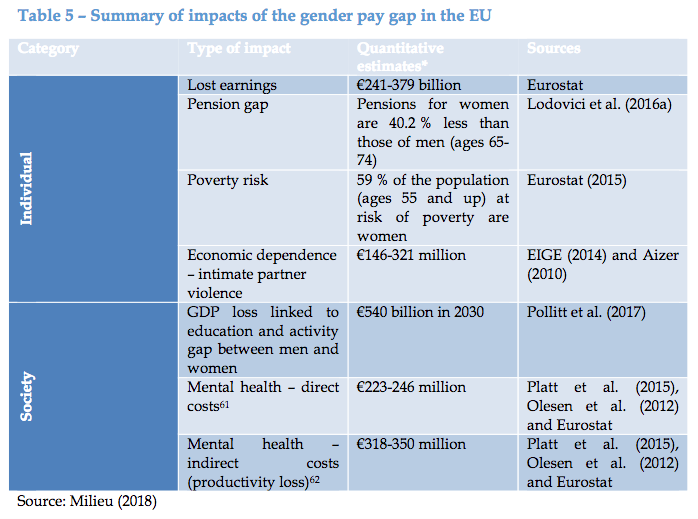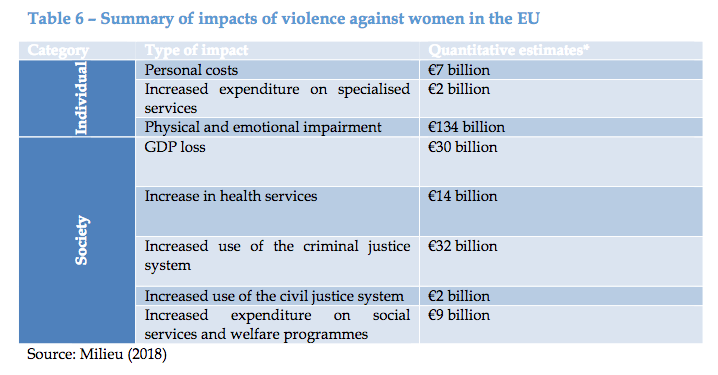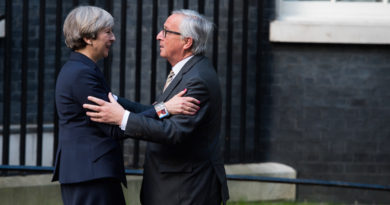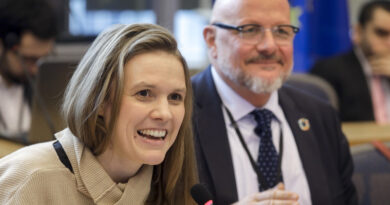Europe Day in Germany and the UK: women call for action
A group of women descended on Berlin on Europe’s Day, May 9, to call for more equality between genders in Europe. A similar event is planned in London on May 13.
Europe’s Day celebrates the Schuman Declaration, a statement made by French Foreign Minister Robert Schuman on 9 May 1950 proposing the creation of a European Coal and Steel Community, the prelude to the birth of the European Community.
But this year, for the first time, celebrations took on a different theme. A group of women from the Pulse of Europe, a series of events initiated in Germany to support the European project, invited fellow Europeans to participate in a march in Berlin. The purpose was to call “for an immediate end to the gender pay gap” in Europe.
“Women in Europe seem to be doing quite well,” says a statement, but “they are still paid less [than men] for the same work and the same qualifications”. They are also under-represented in leadership positions, do most of the work at home and suffer from domestic violence and sexual abuse, said the organisers.
A recent study by the European parliament identified two key problems that stand in the way to equality between women and men in Europe: gender pay gap and violence. The authors calculated the economic cost of this inequality.
They estimate the damage due to lower earnings for women to be between 241 and 379 billion euros per year. This is because women are more likely to take career interruptions or have part-time jobs, temporary contracts and other forms of unstable employment that later result in lower pension contributions. They are also more exposed to poverty and, if staying at home, to domestic violence.
Violence also causes personal and social costs, which were estimated at 225.8 billion euros in 2012, or 231 billion in 2016, across the EU. This considers personal expenses (e.g. moving residence), but also physical and mental impacts for victims.
At present, says the report, there isn’t a legally binding instrument at the EU level that addresses violence against women. And due to differences in the definition and criminalization of these offences, prevention, protection and assistance in EU countries vary significantly.
On top of this, in the UK women are now faced with the Brexit challenge. To highlight the difficulties this might create, a pro-European coalition will demonstrate on Sunday 13 March in London. They will call for the protection of women’s rights as the country leaves the EU. “We must remember gender equality and minority rights as a whole, and make sure that they are not watered-down or worse, drowned out, in the [Brexit] process,” organisers argue.
“In the UK, women rights have been excluded from the discussions on the EU referendum, no gender impact assessment of what Brexit means has been carried out and, really, women are more interested in health and social services that work rather than ‘taking back control’. We are worried that the protections that currently benefit women will be rolled back,” said Susie Courtault, chair of Women for Europe, who also attended the event in Berlin.
The lovely @susiecourtault from Women4Europe spoke at the event in Berlin yesterday organised by @euwomeneu
Thank you for a wonderful day and the chance to speak! #Women4Europe #stopbrexit #resistersisters pic.twitter.com/vkO1t1ChAF
— Women For Europe (@Women_4_Europe) May 10, 2018
A study by the Fawcett Society, a UK charity campaigning for women’s rights, and the Women’s Budget Group, which scrutinizes the government policy from a gender perspective, has revealed the scale of the impacts Brexit can have on women.
The majority of economists predict negative effects on Gross Domestic Product, reminds the report. If the economy shrinks, this is likely to cause job losses, particularly in sectors that are dependent on trade with the EU. These include clothing and textiles, which have a majority of female workforce. An economic downturn will also likely result in cuts to government spending on services, again affecting women.
A crisis and the need to sign new trade agreements might lead to an erosion of workers’ rights, including parental leave, equal treatment and entitlements for part-time workers, which originated from or were strengthened by EU legislation.
Consumers rights might be affected too and trade barriers and a fall in the value of the pound could lead to increased food prices that will hit hard poor households. Finally, the authors say, “the process of Brexit is diverting political attention and increasing levels of public resources away from urgent social issues such as the crisis in social care, housing and economic inequality all of which disproportionately affect women.”
Sam Smethers, CEO of the Fawcett Society, commented: “It is the most disadvantaged women who are most at risk from Brexit. But will they be the ones the UK negotiating team are thinking about? I doubt it.”
Claudia Delpero © all rights reserved.
Photo via Pixabay.






